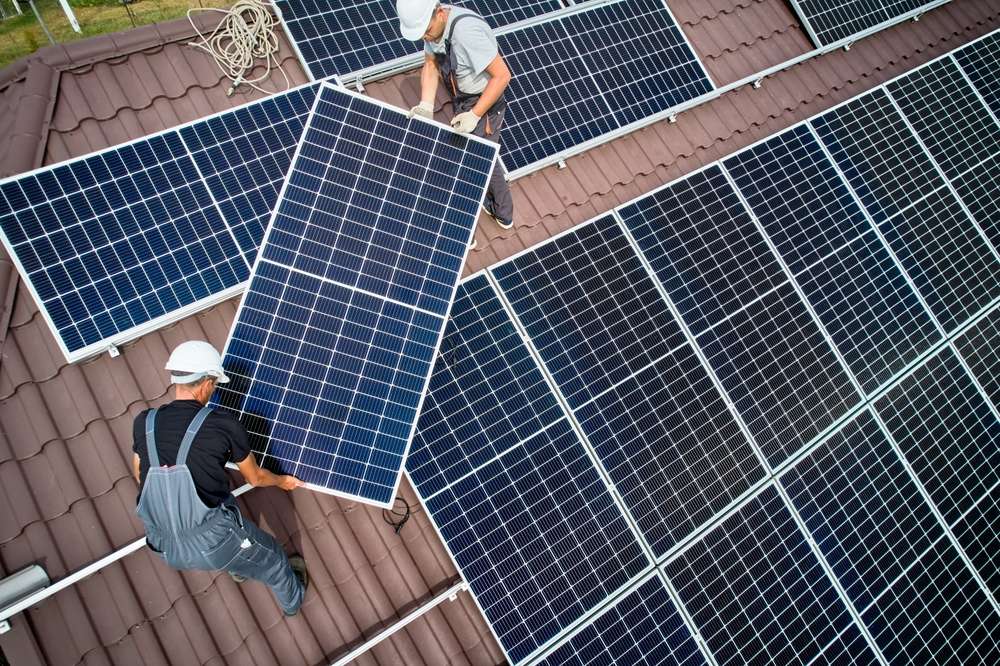Solar Systems & Panels: Harnessing the Sun's Power for Clean Energy
Solar energy has become increasingly popular as a sustainable and cost-effective power source. This article explores solar systems and panels, their functionality, costs, and benefits for homeowners and businesses in the United Kingdom. Solar panels work by converting sunlight into electricity through a process called the photovoltaic effect. When sunlight hits the panels, it excites electrons in the silicon cells, creating an electric field. This field causes electrons to flow, generating direct current (DC) electricity. An inverter then converts the DC electricity into alternating current (AC), which is used to power homes and businesses.

What are the main components of a solar panel system?
A typical solar panel system consists of several key components:
-
Solar panels: The primary collectors of sunlight
-
Inverter: Converts DC to AC electricity
-
Mounting system: Secures panels to the roof or ground
-
Electrical meter: Measures energy production and consumption
-
Battery storage (optional): Stores excess energy for later use
-
Monitoring system: Tracks system performance and energy output
These components work together to harness solar energy and integrate it into your home’s electrical system.
What are the benefits of installing solar panels?
Installing solar panels offers numerous advantages for homeowners and businesses:
-
Reduced electricity bills: Generate your own power and decrease reliance on the grid
-
Lower carbon footprint: Solar energy is clean and renewable
-
Energy independence: Less susceptible to rising energy prices
-
Increased property value: Solar installations can boost home resale value
-
Government incentives: Potential tax breaks and rebates for solar adoption
-
Low maintenance: Solar panels require minimal upkeep once installed
Are there different types of solar panels available?
Yes, there are several types of solar panels available in the UK market:
-
Monocrystalline: High efficiency, sleek appearance, but more expensive
-
Polycrystalline: Less efficient but more affordable
-
Thin-film: Flexible and lightweight, ideal for unconventional installations
-
Bifacial: Capture sunlight from both sides, increasing energy production
-
Building-integrated photovoltaics (BIPV): Seamlessly integrate into building materials
Each type has its own advantages and is suited to different applications and budgets.
What factors influence solar panel performance in the UK?
Several factors affect solar panel performance in the United Kingdom:
-
Geographic location: Southern regions generally receive more sunlight
-
Roof orientation and angle: South-facing roofs at a 30-40 degree angle are optimal
-
Shading: Nearby trees or buildings can reduce panel efficiency
-
Weather conditions: Cloudy days impact energy production, though panels still work
-
Panel quality and efficiency: Higher-quality panels perform better in UK conditions
-
Maintenance: Regular cleaning and inspections ensure optimal performance
Understanding these factors helps in designing an efficient solar system for your specific location and needs.
How much do solar panels cost, and are there any free options?
The cost of solar panels in the UK varies depending on system size, quality, and installation complexity. Here’s a breakdown of estimated costs and potential free options:
| System Size | Estimated Cost Range | Annual Electricity Savings |
|---|---|---|
| 3kW | £5,000 - £6,000 | £500 - £600 |
| 4kW | £6,000 - £8,000 | £650 - £800 |
| 5kW | £7,000 - £9,000 | £800 - £950 |
| 6kW | £8,000 - £10,000 | £950 - £1,100 |
Prices, rates, or cost estimates mentioned in this article are based on the latest available information but may change over time. Independent research is advised before making financial decisions.
While “free solar panels” are not typically available, some companies offer solar panel leasing or power purchase agreements (PPAs). These options allow homeowners to install solar panels with little to no upfront cost, but the company owns the system and sells the generated electricity to the homeowner at a reduced rate.
It’s important to note that while these arrangements can provide immediate savings, they may not offer the same long-term financial benefits as owning the system outright. Additionally, the Smart Export Guarantee (SEG) scheme in the UK allows homeowners with solar panels to earn money by selling excess electricity back to the grid, further offsetting costs over time.
In conclusion, solar systems and panels offer a sustainable and increasingly affordable energy solution for UK residents. While the initial investment can be significant, the long-term benefits of reduced energy bills, lower carbon emissions, and potential government incentives make solar an attractive option for many homeowners and businesses. As technology advances and costs continue to decrease, solar energy is likely to play an even more prominent role in the UK’s clean energy future.




